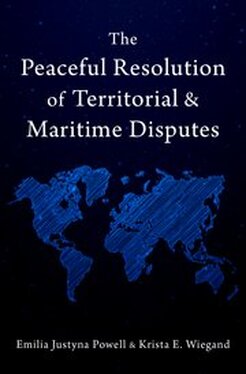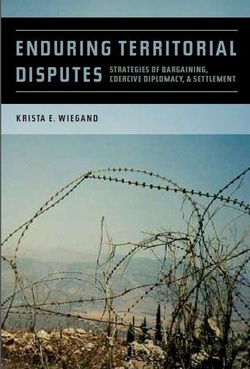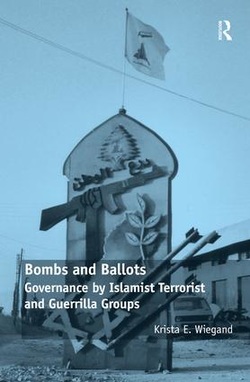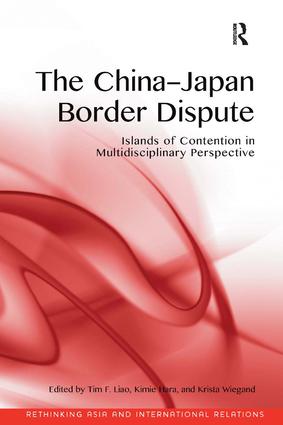BOOKS

The Peaceful Resolution of Territorial and Maritime Disputes, with Emilia Justyna Powell, Oxford University Press, 2023
This book is about the peaceful resolution (PR) of territorial and maritime disputes and states' strategic behavior vis-à-vis methods of peaceful resolution: bilateral negotiations, good offices, inquiry, conciliation, mediation, arbitration, and adjudication. The authors argue that the high stakes associated with settlement of territorial and maritime disputes, the diversity of PR methods employed, and unpredictability of outcomes push states to strategize. Strategic considerations undergird states' choice of the particular PR methods, and states' behavior during the resolution once a particular method such as adjudication or negotiations, has been initiated. Uncertainty about the outcome drives states to pursue "strategic selection." The process of strategic selection occurs at two interrelated stages: the initial pursuit of a particular method and venue--choice-of-venue strategic selection, and decision-making once a PR method/venue has been identified--within-venue strategic selection. The driving force behind strategizing in these two settlement stages is the hope of reducing uncertainty and of increasing the chances of winning. Importantly, as the disputants progress through the settlement process, states reconsider and refine these strategies.
For each stage of strategic selection, Powell and Wiegand identify several mechanisms that influence states' strategies, including past experiences with PR methods (winning/losing), the relationship between domestic law and international law, framing legal claims, and shaping the resolution procedures. This book embraces a multi-method approach and combines statistical analyses and in-depth qualitative interviews with states' legal counsel, judges, arbitrators, government officials, and other experts from multiple countries. The book also highlights numerous real-world instances of territorial and maritime disputes including the Philippines v. China arbitration case in the South China dispute.
This book is about the peaceful resolution (PR) of territorial and maritime disputes and states' strategic behavior vis-à-vis methods of peaceful resolution: bilateral negotiations, good offices, inquiry, conciliation, mediation, arbitration, and adjudication. The authors argue that the high stakes associated with settlement of territorial and maritime disputes, the diversity of PR methods employed, and unpredictability of outcomes push states to strategize. Strategic considerations undergird states' choice of the particular PR methods, and states' behavior during the resolution once a particular method such as adjudication or negotiations, has been initiated. Uncertainty about the outcome drives states to pursue "strategic selection." The process of strategic selection occurs at two interrelated stages: the initial pursuit of a particular method and venue--choice-of-venue strategic selection, and decision-making once a PR method/venue has been identified--within-venue strategic selection. The driving force behind strategizing in these two settlement stages is the hope of reducing uncertainty and of increasing the chances of winning. Importantly, as the disputants progress through the settlement process, states reconsider and refine these strategies.
For each stage of strategic selection, Powell and Wiegand identify several mechanisms that influence states' strategies, including past experiences with PR methods (winning/losing), the relationship between domestic law and international law, framing legal claims, and shaping the resolution procedures. This book embraces a multi-method approach and combines statistical analyses and in-depth qualitative interviews with states' legal counsel, judges, arbitrators, government officials, and other experts from multiple countries. The book also highlights numerous real-world instances of territorial and maritime disputes including the Philippines v. China arbitration case in the South China dispute.

Enduring Territorial Disputes: Strategies of Bargaining, Coercive Diplomacy and Settlement, The University of Georgia Press, 2011
"Enduring Territorial Disputes is a very original study that makes an important and lasting contribution to international relations. It is of the highest caliber and will quickly establish itself among those who study territory as a key book to read."—John Vasquez, author of The War Puzzle Revisited
"Why are disputes over seemingly worthless tracts of land often so difficult to resolve? Wiegand resolves this puzzle by arguing—and demonstrating with careful case studies—that territorial issues can serve as leverage in relations between rivals, in order to extract concessions on other issues. This book is a must read for anyone interested in the effects of territorial issues on international conflict."—Douglas M. Gibler, author of The Territorial Peace: Borders, State Development, and International Conflict
"Enduring Territorial Disputes is a very original study that makes an important and lasting contribution to international relations. It is of the highest caliber and will quickly establish itself among those who study territory as a key book to read."—John Vasquez, author of The War Puzzle Revisited
"Why are disputes over seemingly worthless tracts of land often so difficult to resolve? Wiegand resolves this puzzle by arguing—and demonstrating with careful case studies—that territorial issues can serve as leverage in relations between rivals, in order to extract concessions on other issues. This book is a must read for anyone interested in the effects of territorial issues on international conflict."—Douglas M. Gibler, author of The Territorial Peace: Borders, State Development, and International Conflict

Bombs and Ballots: Governance by Islamist Terrorist and Guerrilla Groups, Routledge, 2010
Eventually, most terrorist and guerrilla groups are defeated by governments or gradually die off - sometimes becoming political parties, democratically participating in the non-violent governance of their states. Yet some terrorist and guerrilla groups maintain military capabilities, using violence and democratic participation simultaneously. Here, Krista E. Wiegand examines the different political strategies that Islamist terrorist and guerrilla groups use to achieve their political objectives. Focusing on Hezbollah in Lebanon and Hamas in Palestine, Wiegand skillfully reveals the factors that determine why Islamist militant groups become involved in governance as political parties, how mainstream governments may or may not accept them as legitimate, why some groups like al- Gama'a al-Islamiya in Egypt renounce guerrilla tactics, and how some groups govern whilst employing political violence. Bombs and Ballots is a valuable contribution to the study of state-society relations in the Middle East, exposing the blurred line between terrorist activity and governance.
"In this engaging and meticulously researched book, Wiegand sheds light on two critical themes in the study of Middle Eastern countries and the larger Muslim world: democratic reform and political violence. Showing movements like Hamas and Hezbollah to be complex, rational actors that strategically blend their use of violent and non-violent tactics, Wiegand moves the discussion beyond its too limited characterization of Middle Eastern political actors as either violent radicals or peaceful reformers. A useful tool for students, scholars and members of the policy community alike." - James A. Piazza, Pennsylvania State University
Eventually, most terrorist and guerrilla groups are defeated by governments or gradually die off - sometimes becoming political parties, democratically participating in the non-violent governance of their states. Yet some terrorist and guerrilla groups maintain military capabilities, using violence and democratic participation simultaneously. Here, Krista E. Wiegand examines the different political strategies that Islamist terrorist and guerrilla groups use to achieve their political objectives. Focusing on Hezbollah in Lebanon and Hamas in Palestine, Wiegand skillfully reveals the factors that determine why Islamist militant groups become involved in governance as political parties, how mainstream governments may or may not accept them as legitimate, why some groups like al- Gama'a al-Islamiya in Egypt renounce guerrilla tactics, and how some groups govern whilst employing political violence. Bombs and Ballots is a valuable contribution to the study of state-society relations in the Middle East, exposing the blurred line between terrorist activity and governance.
"In this engaging and meticulously researched book, Wiegand sheds light on two critical themes in the study of Middle Eastern countries and the larger Muslim world: democratic reform and political violence. Showing movements like Hamas and Hezbollah to be complex, rational actors that strategically blend their use of violent and non-violent tactics, Wiegand moves the discussion beyond its too limited characterization of Middle Eastern political actors as either violent radicals or peaceful reformers. A useful tool for students, scholars and members of the policy community alike." - James A. Piazza, Pennsylvania State University

Islands of Contention: The China-Japan Border Dispute in a Multidisciplinary Perspective, co-edited with Tim Liao and Kimie Hara, Routledge, 2015
Crossing disciplinary boundaries, this volume offers a rare forum for a serious analysis of the territorial dispute over the Diaoyu/Senkaku Islands between China and Japan. To understand the complexity of the dispute and to find peaceful solutions, we must reach beyond the confines of a single discipline and perspective. The volume deconstructs conflicting perspectives on the two sides of the dispute. Territorial disputes often become symbolic expressions of nationalistic rivalries, particularly as political claims for territories escalate and economic competition for resources between countries intensifies. Cutting through the political rhetoric on both sides of the controversy and bringing together a group of eight scholars from the disciplines of history, international relations, law, political science, and sociology, this book analyzes the relevant history, international law, multilateral relations, political agendas, and social and collective memory, to shed light on this difficult dispute. Taken together, the chapters of the book propose short-term, medium-term, and long-term peaceful solutions for going beyond the impasse of the current territorial dispute.